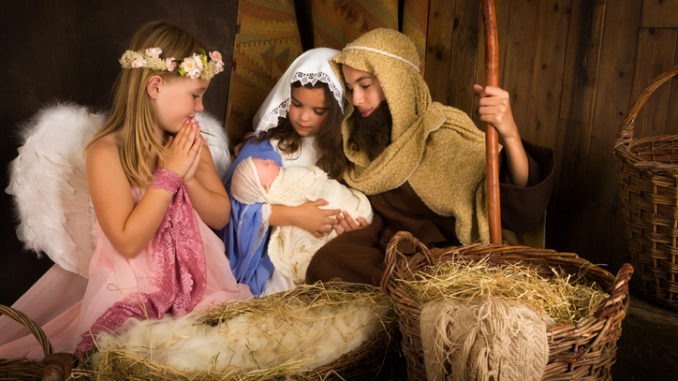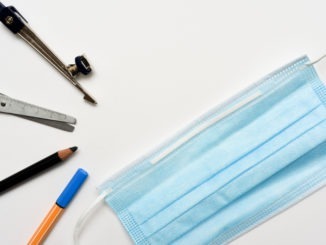
As reported by the Guardian, schools leaders are exasperated with ‘unhelpful’ recommendations from government that in-person nativity plays and concerts go ahead as more are forced to cancel due to rising coronavirus cases
In the week following the detection of the new Omicron variant, many schools have decided to shift their festive concerts and nativity plays online to reduce the risk of audiences spreading infection. Headteachers who spoke to the Guardian said it had been a difficult decision exacerbated by government guidance stating that schools and nurseries “can continue to hold events where visitors such as parents are on-site” while acknowledging that the decision is a matter for individual schools and local public health teams.
On Friday, during a visit to Oswestry in Shropshire before an upcoming byelection, Boris Johnson said that Christmas this year should go ahead “normally”. The prime minister said: “On the subject of Christmas parties, I’ve noticed there’s been quite a lot of to-ing and fro-ing about it, people concerned that they need to cancel their Christmas parties. That’s not right, we’re not saying that and we’re not saying that nativity plays have to be cancelled …Christmas should go ahead as normally as possible.”
But guidance from Croydon council seen by the Guardian said it was “strongly recommending” to all schools the “cancelling of in-person Christmas carol services and performances (unless outdoors)” as well as reverting to in-person bubbles.
One head at a primary school in Bury, Lancashire, said that the local public health team had advised her school against inviting an audience due to the school’s “significant amount” of COVID cases.
In Scotland, nativity plays are banned as part of restrictions on large school gatherings, a move welcomed by education leaders. In Wales, the health minister, Eluned Morgan, has advised caution but fell short of saying whether parties and larger gatherings should take place. Mass gatherings in schools are still permitted in Northern Ireland.
In England, Geoff Barton, the general secretary of the Association of School and College Leaders, said government advice had handed school leaders “a poisoned chalice”. “Many will feel uncomfortable about going ahead, potentially putting them at loggerheads with parents as they try to manage their expectations.”
Sara Herriott, deputy head of Brampton Abbotts primary school in Herefordshire, said her school shifted the nativity play online due to high community infection rates, but noted this was “not an easy option as it involves hours of filming, editing and uploading”.
She said she was angry due to a since-deleted tweet sent by the DfE on 30 November, which suggested heads could “decide if they want to host” nativity plays.“It’s dangerous but also disingenuous,” she said. “If heads make that decision, it will be based on risk assessment in their setting as opposed to simply whether they want to or not.”
She feels the messaging does not reflect the challenges schools face at present. “I’ve heard people say in years gone by that the profession is haemorrhaging staff in the past but I never saw it. Now it’s scary. Schools just don’t have the time or staff to organise events.”
Duncan Thompson, the head of Shawlands primary school in Barnsley, said he had shifted the nativity play online after half-term since he felt “an early, clear decision” would be better for parents, staff and children. “We didn’t want to risk parents booking time off work and a stage nativity being ready only to be cancelled at the last minute, as this causes a lot of upset and frustration for parents.”
He added that the government guidance was “ambiguous” and that this “doesn’t help in situations where the school and parents don’t see eye to eye”.
Rachel Hornsey, head at Sutton Courtenay primary school in Oxfordshire, said her school moved the show online last week to avoid “potentially ruining people’s Christmases”, a decision shared by leaders of about 30 schools in the same academy trust.
She said there were benefits to filming productions, which teach children how media is produced, allow for creative set design and enable more family members to watch the show at a time that suits them.
“You can never replace the excitement of children standing up speaking to a large audience, that boosts their confidence massively, but we found that with filming we could allow children to do their scene, watch it back, and we could instil the idea that you have to do things lots of times until you’re happy with it.”
Some schools are planning to go ahead using mandatory lateral flows, mask wearing, heavily ventilated rooms and outdoor spaces for socialising. Dr Simon Williams, a behavioural scientist, recommended that vulnerable people should consider not attending and parents should minimise social contacts in the run-up to the play. “The more mixing that occurs indoors the more opportunities a virus has to spread,” he said.



Be the first to comment